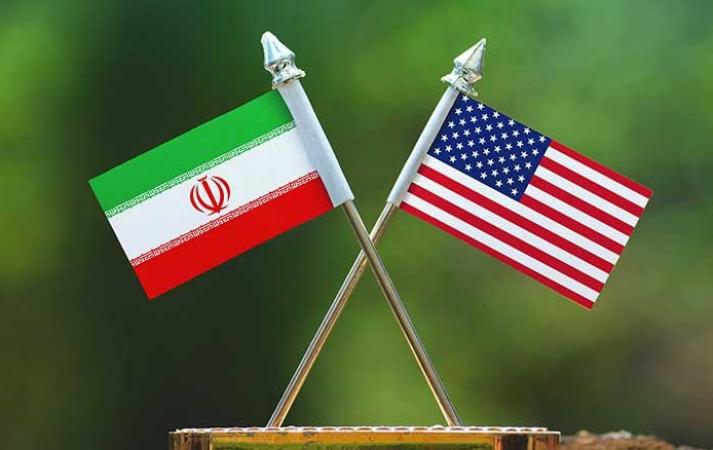One source said that Qatar has been working on facilitating direct talks between the two countries to resolve outstanding issues if a deal is reached.
Qatar is mediating between the US and Iran in an effort to restore the 2015 nuclear accord at the two countries’ request, sources briefed on the talks told the Financial Times on Tuesday.
The Gulf State’s efforts complement the Vienna talks, which kicked off in April last year, without any progress.
A senior US official said that Qatar had been “extremely, extremely helpful in supporting efforts to resume full implementation” of the Joint Comprehensive Plan of Action (JCPOA).
Whilst an Iranian official declined to discuss Qatar’s role, they said that “one or two other countries have brought messages from the US in some cases”.
“The biggest mistake with the 2015 deal was the talks stopped after it was signed,” a diplomat told the FT.
“Initially, neither side trusted one another, and needed signs of good faith, but now there are positive movements. The Iranians now see Biden as someone they can negotiate with,” they added.
The sources told the FT that Qatar had carried messages between the two countries to address the US and Iran’s concerns, which included guarantees that the former will not back out of the deal.
The diplomat said that Iran wanted to resolve its differences with the US in a single agreement to revive the nuclear deal. Qataris and Europeans involved in the talks said that the US and Iran should first agree on a nuclear accord given due to its urgency.
They officials said that outstanding topics should be either kept separate from the talks “or continue talks on other issues, like other sanctions, after the deal is signed”.
A state of mistrust
In 2018 the former Donald Trump administration unilaterally withdrew from the JCPOA.
The move came as part of his effort to exert “maximum pressure” on Iran and has created a lack of trust between the two countries.
“Both sides really need a deal, and there’s a willingness on both sides, but the biggest problem is trust,” a diplomat told the FT.
“They each think the other side doesn’t want it, which is not legitimate.”
The diplomat added that Qatar has been working on facilitating direct talks between the two countries to resolve outstanding issues if a deal is reached.
Western powers from the p4+1, including the US, UK, France, China, Russia plus Germany, have warned that time is running out to restore the deal.
The first rounds of the indirect talks between the US and Iran saw the establishment of two working groups. One was dedicated to ensure the US lifts its sanctions on Iran as the other was focused on ensuring Iran reduces its nuclear activities.
“The worry with no guarantee is the Iranians will go into it with one eye open and be prepared that in two years the US could leave again,” the diplomat said.
“The Iranians could use these two years to develop trust and relations with the EU and Asia, and build further institutional trust and other negotiations with the US.”
Qatar-Iran meetings
The FT’s report comes following mutual visits between senior Qatari and Iranian officials.
In January, Iran’s Foreign Minister Hossein Amir-Abdollahian visited Qatar in a bid to strengthen bilateral ties. This was followed by a visit in the same month by Qatar’s Foreign Minister Sheikh Mohammed bin Abdulrahman Al Thani to Iran.
Qatar’s Amir Sheikh Tamim bin Hamad Al Thani and Qatar’s foreign minister departed to Washington, where they met with US President Joe Biden along with other senior diplomats.
Following Washington’s visit, Sheikh Mohammed made a secret visit to Tehran, a move that raised questions over the Gulf state’s mediating role between the US and Iran.
Iran’s President Ebrahim Raisi then traveled to Qatar in February on his first official visit.
Qatar has long called for the restoration of the nuclear deal and offered to mediate between Washington and Tehran.
The Gulf state has a long history of mediation and conflict resolution, calling for resolving disputes through diplomatic means.
Follow Doha News on Twitter, Instagram, Facebook and Youtube







